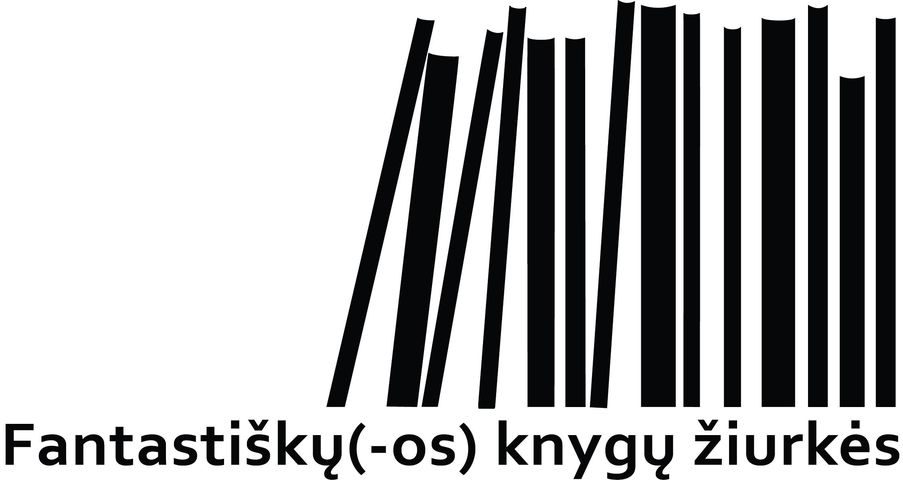Kai pradėjau klausyti šitos knygos (savaime suprantama, mašinoje) tai verkiau, o paskui juokiausi. Taip gražiai knygos autorė duoda toną savo knygai – lyg ir liūdna, labai liūdna, ką skaitai, bet verkt ne tai, kad negalima, tiesiog nėr kada – reikia gyventi. Gyventi plačiai atmerktom akim, kad matytum ne tik tai, kas matoma.
Apie knygų kategorizavimą aš šį kartą iš viso nekalbėsiu, nes šioji tikriausiai net ne young adult, o vaikų knyga – visai nesvarbu. Iš tikro jinai yra nuostabi. Na, negaliu sakyti, kad pakeitė gyvenimą, ar kažką panašaus, gal labiau nurodė kryptį, atvėrė akis, o gal parodė, kaip žiūrėti.
Šeimoje gimsta berniukas deformuotu veidu ir tai yra vienintelis jo kitoniškumas nuo kitų žmonių. Dėl to jam yra begalo sunku, nes žmonės mato tik tą vienintelį jo kitoniškumą ir nieko daugiau. Visiškai nemato, kas yra už to veido ir koks Augustas yra. Augustas mokosi namuose, bet ne dėl to, kad šitaip slėptusi nuo nepageidaujamo dėmesio, o dėl nuolatinių operacijų, kuriomis bandoma atitaisyti gamtos klaidas. Bet štai laikas keliauti į penktą klasę ir Augusto mama pasiūlo berniukui eiti į tikrą mokyklą. Po įvairiausių taip ir ne, į mokyklą vis dėlto susiruošiama ir prasideda sunkiausi ir nuostabiausi berniuko metai.
Tuos Augusto gyvenimo metus autorė atskleidžia kalbėdama jo paties, jo sesers, jo klasiokų lūpomis. Sunku ne tik berniukui, bet ir jo artimiesiems, jo draugams. Vis dėlto svarbiausia knygoje yra meilė ir draugystė, nes būtent meilė, draugystė ir gerumas (kindness) ledžia išvysti daugiau ir giliau, meilė ir draugystė yra stebuklingas filtras, kuris tiesiog įgalina matyti kitaip. Atsimenu, kaip mūsų literatūros mokytoja pasakojo, kaip pagavo save gailint moters, kuri sunkiai ėjo gatve ligos išsukinėtomis kojomis. Bet gal moteris laiminga, kad apskritai eina? Gal prieš mėnesį ji gulėjo prikaustyta prie lovos ir neapsiėjo be kitų pagalbos? Taip ir knyga padės (tikiu) kiekvienam skaitytojui pamatyti, o su laiku gal ir pasielgti kitaip.
Įvedus į paiešką autorės pavardę, išmeta nuotrauką, kurioje autorė yra su mergaite. Neieškokite tos nuotraukos dabar, padarykite tai, kai perskaitysite knygą, pamatysit – įvyko stebuklas.
***
Keletas faktų apie knygą:
What inspired you to write Wonder?
About five years ago I took my son’s for ice cream, and while my older son went inside to buy us our milk shakes, my younger son and I waited on the bench outside. My younger son was only about 3 years old at the time, and he was in his stroller facing me while I sat on the bench. At a certain point I realized that sitting right next to me was a little girl with a severe craniofacial difference, her friend (or sister), and her mother. When my younger son looked up and saw her, he reacted exactly the way you might think a three-year old would react when seeing something that scared him: he started to cry—pretty loudly, too. I hurriedly tried to push him away in the stroller, not for his sake but to avoid hurting the girl’s feelings, and in my haste I caused my older son to spill the shakes, and, well, it was quite a scene—the opposite of what I had hoped for. But as I pushed my younger son’s stroller away I heard the little girls’ mom say, in as sweet and calm a voice as you can imagine: “Okay, guys, I think it’s time to go.” And that just got to me.
For the rest of the day, I couldn’t stop thinking about how that scene had played out. It occurred to me that they probably went through something like that dozens of times a day. Hundreds of times. What would that be like? What could I be teaching my children so they could understand how to respond better next time? Is “don’t stare” even the right thing to teach, or is there something deeper? All this stuff was flying through my head, and I realized that I was disappointed in myself because I had missed a good teaching moment for my kids. What I should have done, instead of trying to get my kids away and avoid the situation, was engage the girl and her mother in conversation. If my son cried, so be it: kids cry. But I should have set a better example for him, and shown him there was nothing to fear. Instead I panicked. I simply didn’t have the wherewithall to know what to do in that situation.
Coincidentally, the song Wonder by Natalie Merchant came on the radio that night, as I was thinking about the ice cream incident, and something about the words to the song just got to me. I started writing Wonder that very night.
– Daina
-Lietuviškai



